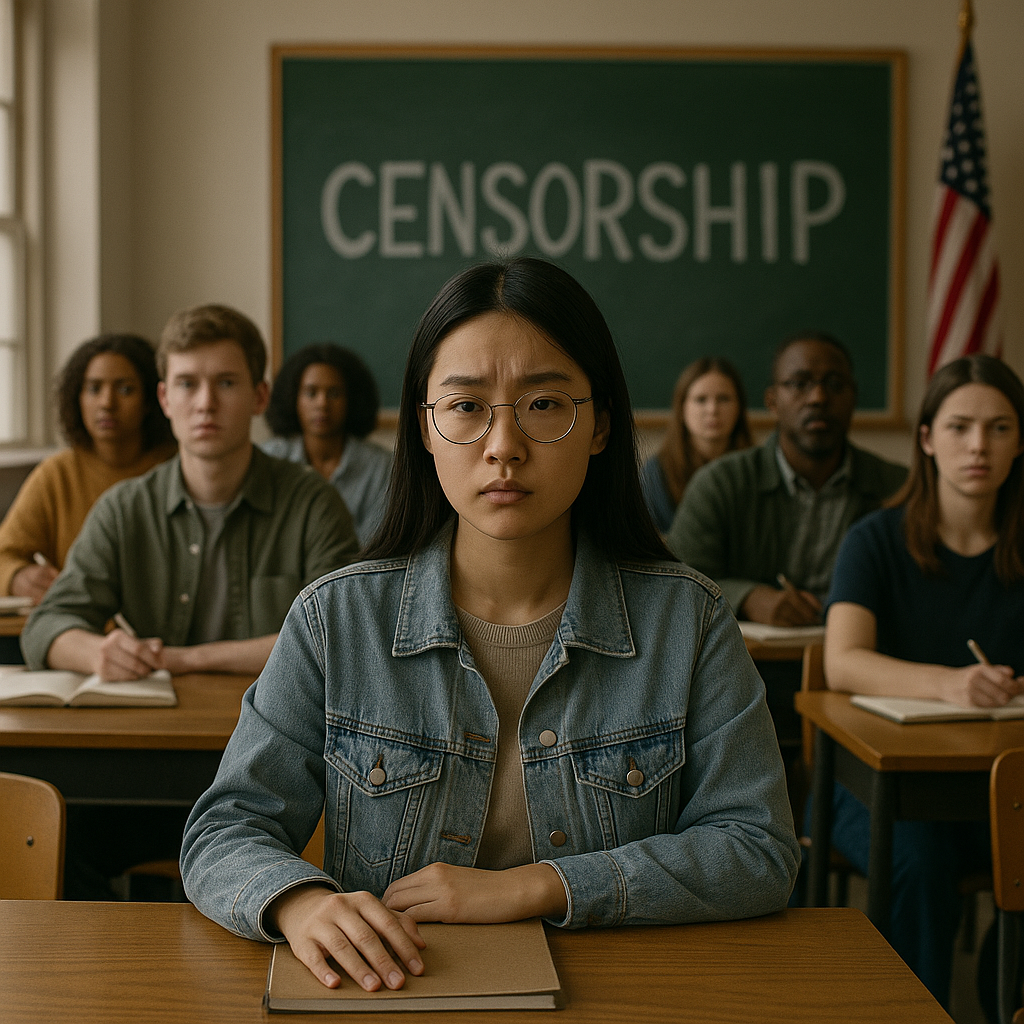UN Expert Warns US Against Escalating Political Censorship in Education
Shaheed closed her remarks with a sobering reflection: “Without bold, structural reforms, these trends will continue to erode equitable access to education and diminish its role in sustaining democratic society.”

Farida Shaheed, the United Nations Special Rapporteur on the right to education, issued a stark warning during her address to the Human Rights Council, expressing deep concern over the increasing political interference gripping the American education system. In her report following an official country visit to the United States, Shaheed detailed a rapidly deteriorating landscape in which academic freedom, student activism, and institutional autonomy are under direct threat.
From controversial book bans and state-imposed curriculum restrictions to the widely criticized move to bar Harvard University from enrolling international students, Shaheed described a growing “coercive assault” on educational institutions that risks undermining the democratic foundations of learning.
Pattern of State Overreach and Repression
Shaheed’s report identifies a clear and troubling pattern in which state and federal authorities are using coercive mechanisms—ranging from funding threats and accreditation manipulation to legislative censorship—to control educational content, intimidate faculty, and penalize student protestors.
“The Harvard case is not an anomaly,” Shaheed emphasized. “It is part of a coordinated campaign to politicize education, marginalize dissent, and shrink the space for pluralistic, critical thinking.”
Her visit and subsequent investigations documented a range of discriminatory and authoritarian actions, including:
-
Censorship of topics related to race, gender identity, and US history;
-
Targeted surveillance of student protest movements;
-
Deportation threats and disciplinary action against non-citizen students;
-
Pressure on universities to discipline or silence faculty for expressing controversial views.
Such interference, she argued, has created a “chilling effect” across classrooms and campuses, discouraging open debate and critical engagement.
A Call to Uphold the Right to Education and Academic Freedom
Shaheed underscored that education must be recognized as a fundamental human right—not a political battleground. She reminded the United States of its obligations under international treaties such as the International Covenant on Civil and Political Rights (ICCPR), which mandates respect for freedom of thought, expression, and peaceful protest.
“Academic freedom is not a luxury or a partisan issue—it is a pillar of scientific progress, civic participation, and democratic integrity,” she said.
Her report praised more than 200 universities that have resisted political pressure, including threats of funding withdrawal and administrative retaliation. These institutions, she said, are safeguarding not only their campuses but also the broader principles of a free and informed society.
Recommendations for Structural Reform
To counter the ongoing encroachments, Shaheed presented a comprehensive set of policy recommendations aimed at reinforcing educational equity, freedom, and institutional resilience. Key proposals include:
-
Recognizing education as a public good and addressing funding disparities across schools and universities;
-
Ending content censorship and ensuring diverse and inclusive curricula;
-
Protecting tenure and academic governance from external manipulation;
-
Prioritizing student mental health through restorative rather than punitive disciplinary measures;
-
Guaranteeing the rights of protest and free expression for all students and educators, especially those from marginalized or immigrant communities.
She urged U.S. authorities at all levels—local, state, and federal—to commit to these reforms and adopt the UN Principles for Implementing the Right to Academic Freedom, which provide international standards for shielding academic activities from political and commercial interference.
A Critical Crossroads for American Democracy
Shaheed closed her remarks with a sobering reflection: “Without bold, structural reforms, these trends will continue to erode equitable access to education and diminish its role in sustaining democratic society.”
As education becomes increasingly entangled in ideological battles, the future of free inquiry, civic engagement, and intellectual exploration hangs in the balance. Whether the United States can reaffirm its commitment to academic freedom will not only determine the fate of its universities but may also shape the health of its democracy for generations to come.
ALSO READ
Trump's Harvard Feud Heats Up: Foreign Student Ban Sparks National Security Debate
Trump's Controversial Crackdown on Harvard's Foreign Students
Trump Blocks Foreign Students at Harvard: A National Security Move or Personal Feud?
Trump Suspends Foreign Student Entry to Harvard Amid Escalating Dispute
Taipei Vigil for Tiananmen: A Resilient Stand for Global Human Rights










